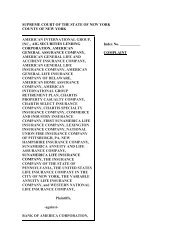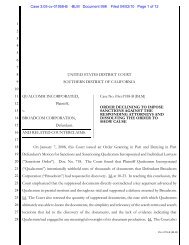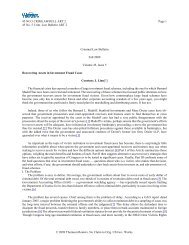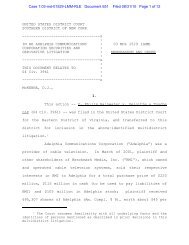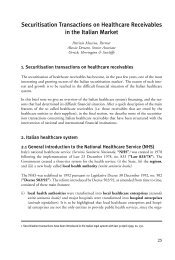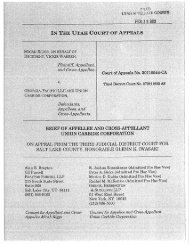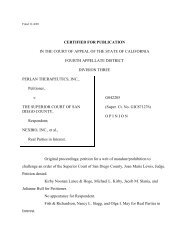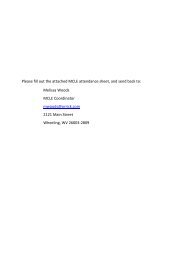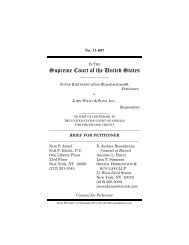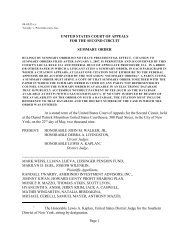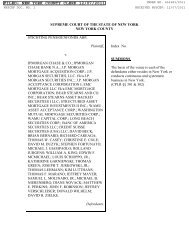Public Charter Schools Borrowing With Tax-Exempt Bonds, Second ...
Public Charter Schools Borrowing With Tax-Exempt Bonds, Second ...
Public Charter Schools Borrowing With Tax-Exempt Bonds, Second ...
Create successful ePaper yourself
Turn your PDF publications into a flip-book with our unique Google optimized e-Paper software.
B. Disclosure Responsibilities<br />
Failure to provide the Annual Report or Special Events Notices in accordance with<br />
and by the time agreed in the Continuing Disclosure Certificate would result in the<br />
school having to disclose such failure in its official statements for the next five years.<br />
Disclosing information that is either inaccurate or incomplete in a way that would be<br />
material to investors, in light of the circumstances under which these disclosures are<br />
made, could lead to investor suits or SEC action for securities fraud under Rule 10b-5.<br />
C. Bond Document Responsibilities<br />
Failure to comply with covenants in the bond documents normally would constitute<br />
a default under the documents and could lead to a declaration of an Event of<br />
Default and consequent remedies, including the involvement of a special thirdparty<br />
consultant guiding a review and reform of the school’s operations or, in some<br />
cases, a declaration that the entire principal amount of bonds become immediately<br />
due and payable. Even without a declaration of Event of Default, bond document<br />
defaults may be required to be disclosed in audited financial statements or to rating<br />
agencies or credit providers. It may also affect the ability to issue additional bonds<br />
under the terms of the bond covenants.<br />
As described above in Chapter 11, “Steps to Issuing the <strong>Bonds</strong> and the<br />
Finance Team,” professional assistance in complying with the several post-issuance<br />
responsibilities is available through rebate analysts and other compliance monitoring<br />
consultants. <strong>Public</strong> charter schools that issue tax-exempt bonds should retain such<br />
services in order to ensure compliance over the relevant period of time, as it is likely<br />
the tenure of the staff and board of the charter school who were involved in the<br />
issuance of the bonds will not outlast the tenure of the bonds themselves. Even large<br />
sophisticated CMOs should review the need to retain such services.<br />
34. If the bonds are issued in authorized denominations of $100,000 or more, and are sold to qualified<br />
purchasers by private placement (or may be tendered at par at least as frequently as every nine months),<br />
they are exempt from SEC Rule 15c2-12, which requires the charter school to undertake the obligations<br />
described in this paragraph. However, even when the exemption applies, charter schools will typically take<br />
on such responsibilities anyway in order to satisfy the requirements of bond investors.<br />
35. Direct communications with investors should be undertaken carefully, in order to comply with the basic<br />
concept that no material nonpublic information be provided to any one or small group of investors without<br />
also making such information available to the entire marketplace (e.g., through posting on EMMA).<br />
<strong>Public</strong> <strong>Charter</strong> <strong>Schools</strong> <strong>Borrowing</strong> <strong>With</strong> <strong>Tax</strong>-<strong>Exempt</strong> <strong>Bonds</strong>, <strong>Second</strong> Edition 59



